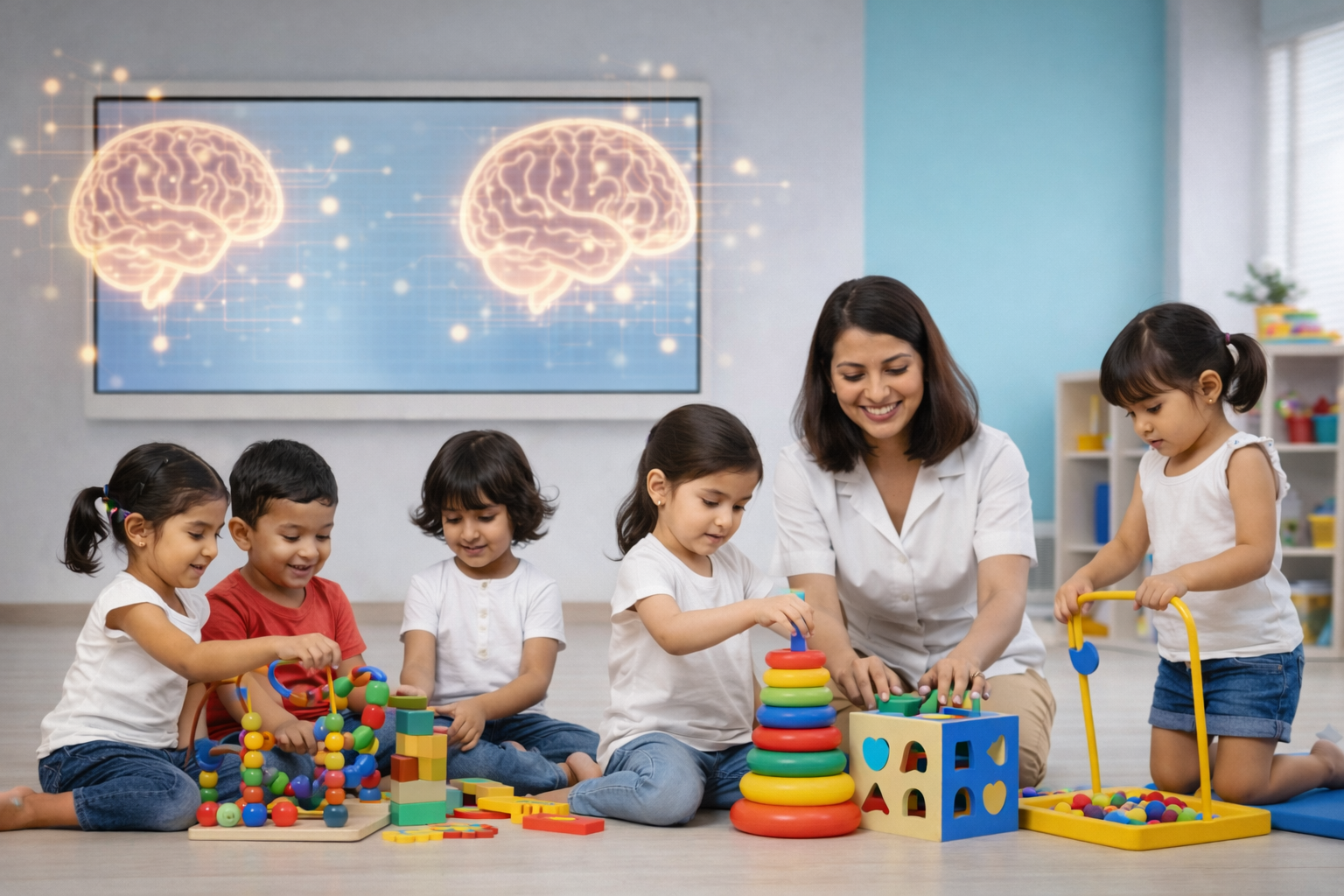The Importance of Routine in a Child’s Emotional Development
For a child, the world can often feel unpredictable and overwhelming. Amidst this chaos, a well-structured routine gives them a sense of control and security. While adults may see this as just a simple task, a consistent daily routine serves a significant role in a child’s emotional and psychological growth.
Dr. Purva Shah, a leading child psychologist at Samvedan Child Development Center, states, “A child’s emotional development is strongly linked to the predictability and structure of their surroundings. Routine is not just about managing time; it’s about emotional stability.”
We will explore why routines are essential for children’s emotional well-being and how expert support from a Child Development Center like Samvedan can make a life-changing difference.
Understanding the Emotional Value of Routine
Children thrive on habits. They learn best in environments where they know what to expect. Without a structured routine, children may feel anxious or stressed due to uncertainty.
Dr. Purva Shah points out that routines offer an emotional ‘anchor.’ “When a child follows a consistent pattern each day, it helps them feel safe and in control, which is fundamental for emotional growth,” she explains.
At Samvedan Child Development Center, one of the main strategies for nurturing emotional stability is building routines, especially for children facing anxiety, attention disorders, or challenges with emotional regulation.
Emotional Benefits of Routine: More Than Just a Schedule
1. Creates a Sense of Safety and Predictability
Children feel secure when their daily lives follow a predictable rhythm. Simple routines like morning wake-up habits, meal schedules, and bedtime rituals offer a comforting framework. This predictability lowers stress and emotional outbursts, as children do not constantly face surprises or uncertainties.
2. Strengthens Emotional Self-Regulation
When children know what to expect next, they can prepare both mentally and emotionally for transitions. This helps them manage their emotions better, reducing frustration, anger, or anxiety. At Samvedan, parents receive guidance on creating routines that help children regulate their emotions naturally over time.
3. Encourages Responsibility and Independence
A well-structured routine fosters a sense of responsibility in children. Tasks like organizing their school bag, laying out their clothes for the next day, or following a bedtime routine teach accountability. These small daily responsibilities gradually build a child’s confidence and encourage independence.
4. Supports Cognitive and Social Development
Beyond emotional stability, routines enhance attention spans, improve focus, and promote healthier social interactions. Structured routines help children understand boundaries, respect schedules, and engage positively with peers and family.
Common Challenges Parents Face in Establishing Routines
While the advantages of routines are clear, implementing them can be tricky. Modern life, busy parental schedules, and a child’s temperament can make it hard to stick to routines.
Some common hurdles include:
- – Inconsistent wake-up and sleep times
- – Resistance to structured meals
- – Difficulty transitioning between activities
- – Screen time disrupting daily patterns
Dr. Purva Shah observes that many parents who visit Samvedan Child Development Center feel overwhelmed and frustrated when their initial attempts at setting routines do not succeed. This is where professional guidance becomes crucial.
How Samvedan Child Development Center Helps Build Effective Routines
At Samvedan, routine-building is not a “one-size-fits-all” approach. Each child is unique along with their emotional needs. The center provides:
- Personalized Routine Plans: Tailored to the child’s age, temperament, and emotional needs.
- Parental Counseling: Teaching parents how to maintain consistency without being inflexible.
- Behavioral Therapies: For children facing challenges with attention, emotional regulation, or developmental disorders.
- Collaborative Workshops: Involving both parents and children to promote routine-building in a supportive environment.
A key strategy Dr. Purva Shah recommends is to “start small and build gradually.” Instead of trying to change a child’s whole day at once, parents are guided to focus first on anchoring 2-3 key activities (like sleep, meals, and playtime) and then expand from there.
Real-Life Success Story: Aarav’s Transformation Through Routine
To see the significant impact of routines, consider Aarav, a 6-year-old who came to Samvedan Child Development Center with issues like frequent mood swings, restlessness, and emotional outbursts. His parents had tried various methods at home but could not create a consistent routine.
Under Dr. Purva Shah’s guidance, a step-by-step routine plan was developed. This involved using visual routine charts, positive reinforcement strategies, and minor adjustments to daily habits. Within three months, Aarav’s behavior showed significant improvement. He became calmer, more focused, and managed transitions between activities without emotional meltdowns.






